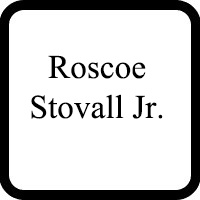Switz City White Collar Crime Lawyer, Indiana
Sponsored Law Firm
-
 x
x

Click For More Info:
-
The Law Offices of Richard L. Cooper, P.A.
848 Brickell Avenue Suite 800 Miami, FL 33131» view mapDWI/DUI, Drug Trafficking, Felony Nationally Ranked Top 40 Under 40
With Richard L. Cooper you can expect a trusted confidant who will work diligently to fully understand your case and determine a road map to help you regain control of your life.
800-756-2781
Not enough matches for Switz City White Collar Crime lawyer.
Below are all Switz City Criminal lawyers.
Roscoe Stovall
✓ VERIFIEDCriminal, Accident & Injury
Roscoe Stovall is a practicing lawyer in the state of Indiana.
Karen Ruse Strueh
Real Estate, Government Agencies, Estate, Criminal
Status: In Good Standing Licensed: 47 Years
Eric Allan Koch
Real Estate, Health Care, Estate, Criminal, Accident & Injury
Status: In Good Standing Licensed: 35 Years
John M. Plummer
Litigation, Estate Planning, Family Law, Criminal
Status: Deceased Licensed: 56 Years
William Gene Brown
Family Law, Criminal, Bankruptcy, Personal Injury
Status: In Good Standing Licensed: 56 Years
Edward Andrew Mcglone
Traffic, Family Law, DUI-DWI, Criminal, Accident & Injury
Status: In Good Standing Licensed: 35 Years
Christopher P. Shema
Child Support, Adoption, Criminal, Bankruptcy
Status: In Good Standing Licensed: 29 Years
Jon Charles Spurr
Family Law, Divorce, Criminal, Bankruptcy
Status: In Good Standing Licensed: 26 Years

 Richard L. Cooper Miami, FL
Richard L. Cooper Miami, FL AboutMiami Attorney at Law
AboutMiami Attorney at Law ServicesCriminal Defense
ServicesCriminal Defense

